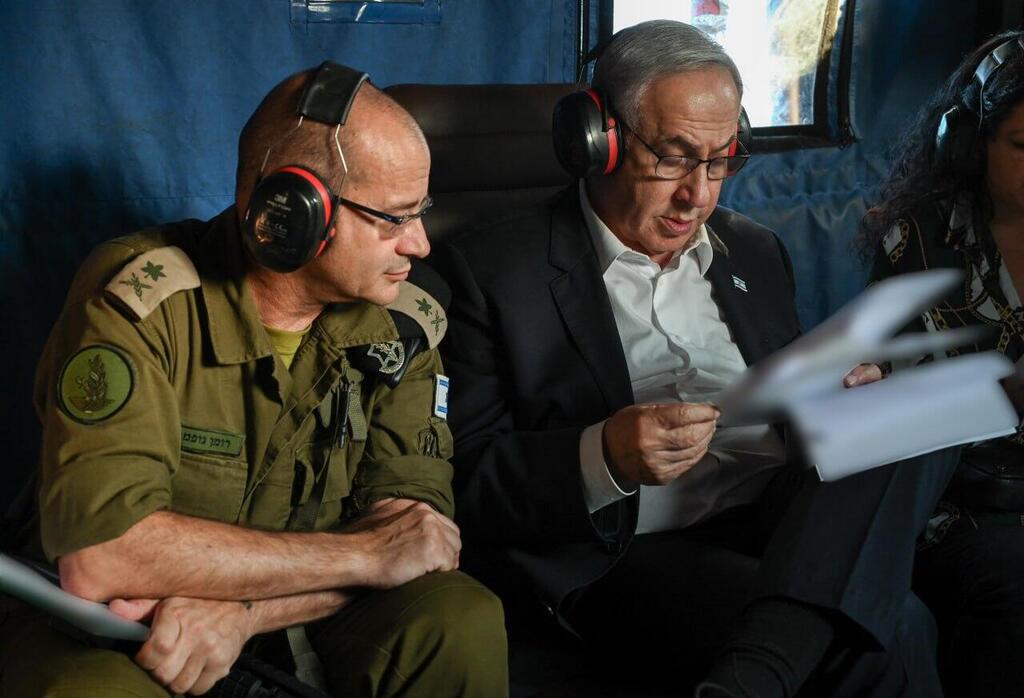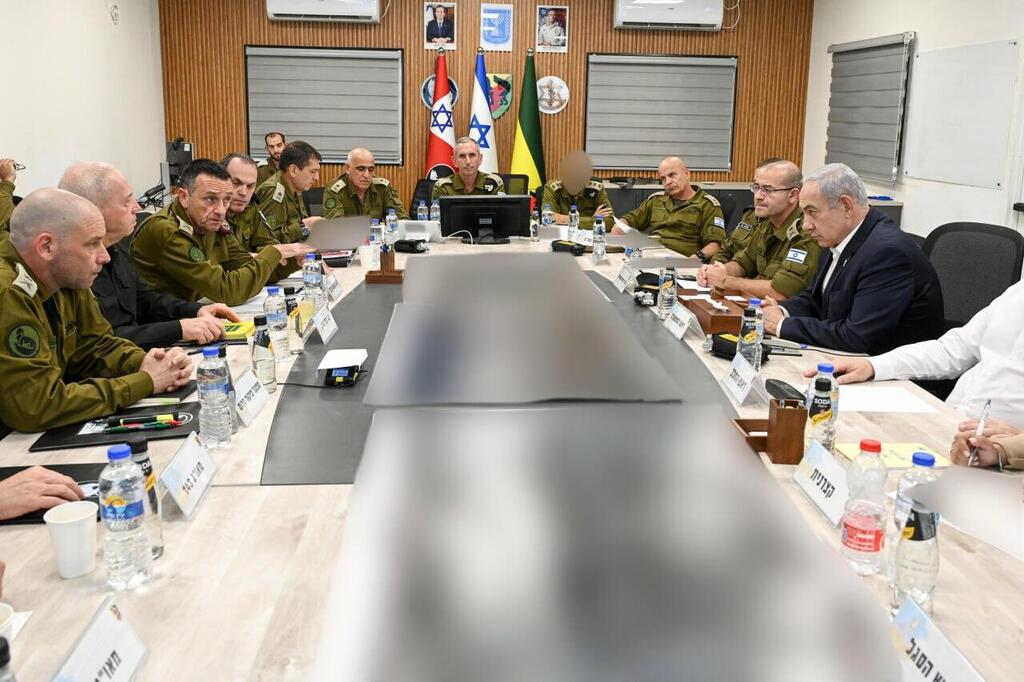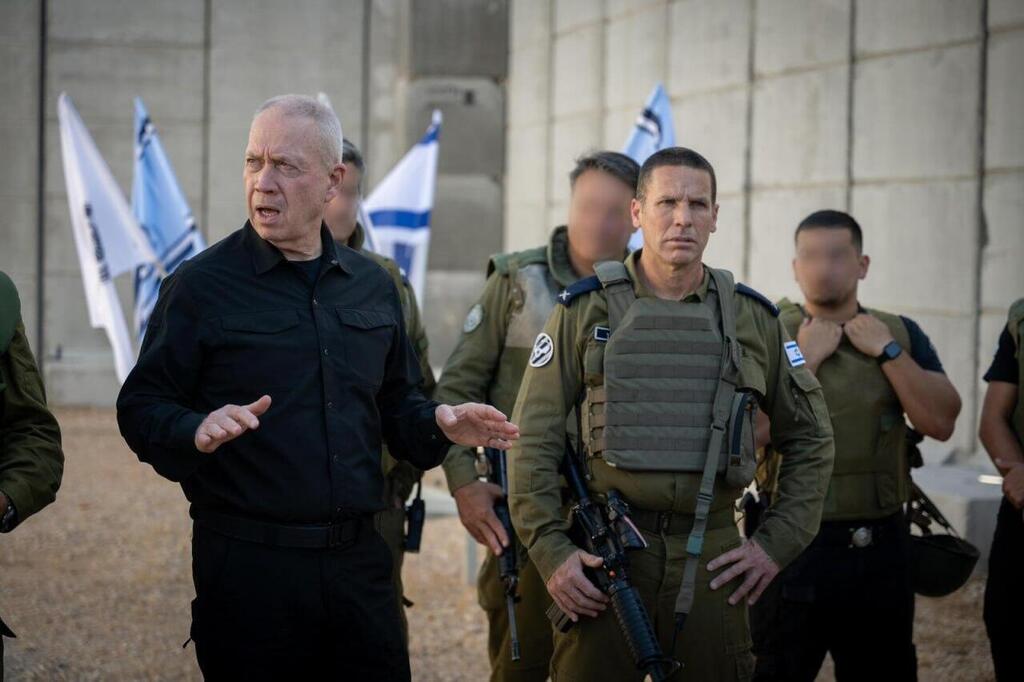On Sunday, Prime Minister Benjamin Netanyahu held a security assessment in the Southern Command to discuss the IDF's shift to Phase 3 in the Rafah operation. This new phase of the Rafah operation would shift the IDF from prolonged fighting to repetitive raids to further damage Hamas' capabilities on a deeper level.
The security assessment focused on the fighting in Rafah and the continuation of military pressure on Hamas to secure a hostage deal. Defense Minister Yoav Gallant, IDF Chief of Staff Lt. Gen. Herzi Halevi, Head of the National Security Council Tzachi Hanegbi, Head of Military Intelligence Maj. Gen. Aharon Haliva and other officials attended the meeting.
The end of Phase 2 was delayed for months and the Gaza incursion is close to completion after almost nine months. In the next phase of the war, regular IDF divisions will be deployed to Hamas targets in designated raids to locations that were previously flagged during the operation, mainly in northern Gaza. The 98th Brigade began conducting such raids with two divisions, the 7th Division and the Paratroopers Division, in the Shijaiyah neighborhood and the Zeitoun neighborhood in Gaza City, where forces have already been deployed multiple times in recent months.
The transition to Phase 3 was delayed for several weeks, partly due to concerns in Israel about Hamas brigades in Rafah, and also due to strong American and Egyptian opposition. According to the Hamas forces in Rafah, there was no exceptional opposition in the fighting. In the end, the IDF managed to evacuate most of the population from Rafah and the Philadelphia Corridor northward, with only one brigade instead of two as planned. Brigade 162 will dismantle Hamas frameworks throughout Rafah's neighborhoods as a major final act of Phase 2.
3 View gallery


Netanyahu and Military Secretary Major General Roman Gofman
(Photo: Maayan Toaf, GPO)
The troops were instructed to damage Hamas infrastructure during six weeks of operating in Rafah. According to data from Brigade 162, about 700 Hamas operatives from the Rafah brigade were killed or injured, out of 3,000. The rest are believed to have fled north, mainly to Khan Younis, from which the IDF withdrew about three months ago, or are hiding in tunnels ready to use guerrilla tactics.
The transition to Phase 3, as explained by the IDF, will continue for many months during which the IDF will continue to conduct raids based on intelligence, with an emphasis on eliminating leaders and destroying infrastructure. It will also allow more IDF units to prepare for extensive military action in the north against Hezbollah. The IDF recommends remaining in the Philadelphi Corridor between Rafah and Sinai, to prevent smuggling of weapons across the border.
According to the IDF, it will take at least another six months to uncover, investigate and demolish the many smuggling and offensive tunnels beneath the Philadelphi Corridor, many of which are rigged with massive IEDs that "have not yet been seen," according to testimonies from commanders in the field. Remaining on the Egyptian border will require the approval of Egypt and the U.S., as Israel committed to a limited operation in Rafah.
From Cairo's perspective, Egypt continues to call for the IDF's withdrawal from the Palestinian side of Rafah, while pushing for an agreement with Hamas. An Egyptian source said that Cairo refuses "any entry of Egyptian forces into the Gaza Strip. The stabilization of the Gaza Strip after the war is an internal Palestinian matter." He said there are no Egyptian discussions regarding Israeli supervision of the Rafah crossing, and Egypt insists on a complete withdrawal of the IDF from the Palestinian side of Rafah.
Gallant conducted a security assessment in Rafah on Sunday, where he clarified that operations in Gaza's southern city will continue until the full dismantle of Hamas capabilities: "We will persist and intensify until we reach a situation where we are choking their lifeline and preventing them from rebuilding their strength."




